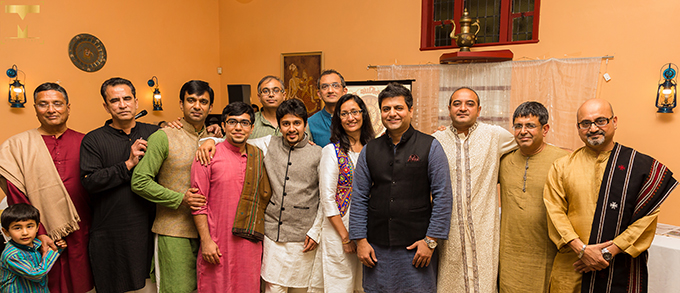
By Ami Dhabuwala
Migrants from Gujarat who are living in Auckland have set up a theatre and literature group to celebrate their mother tongue.
The group’s treasurer, Rupesh Parikh, says it was formed to provide a formal structure to make things happen.
Gujarati Sahitya Mandal (Gujarati Literature Group) consists of 15 core members who enjoy Gujarati literature. They launched the mandal or group on April 30.
The president of the group is Shailesh Prajapati.
“It is essential for our next generation to know their mother tongue. Therefore, we decided to start the Mandal to spread, promote and teach Gujarati language,” he says.
“We are also planning to teach Gujarati to the younger kids so they know the importance of the mother tongue and can feel proud of that.”
The group plans to organise workshops, readings, festivals and literary events, seminars, exhibition, symposiums, community and various social events alongside encouraging aspiring contemporary and new writers with a prize.
Hosting overseas artists
Brijesh Oza, Gujarati Sahitya Mandal’s secretary, says there are also plans to invite and host overseas artists and visitors.
Prajapati has been working in the media, arts and entertainment industries for 35 years. He is a part of Auckland-based Rangmanch of NZ, an organisation for Gujarati drama.
“We are also planning to present stage-plays, musical functions and recitations of Gujarati culture and tradition,” he says.
“We want Gujarati people to come forward and help us to keep alive our language. We want them to become a member of this mandal and support us so that we can pursue our goal together.”
The group plans to invite Indian Prime Minister Narendra Modi, who is Gujarati and was a Chief Minister of Gujarat for more than 10 years.
Oza says that such activities play important role when people are living in another country.
“Such mandal keeps you connected to your roots, culture and values. It helps you to establish your own identity.”
The group has annual membership fees and wants support from the Indian community of New Zealand. The group may also needsome additional funding from the government or private companies as well.
“Don’t be embarrassed to speak your language and be proud of being Gujarati,” says Prajapati.
Ami Dhabuwala writes for Asia Pacific Report and this article was first published by Te Waha Nui, both journalism publications at AUT.















































Happy to read WORTH reports.
Keep it Up 🙂
Comments are closed.